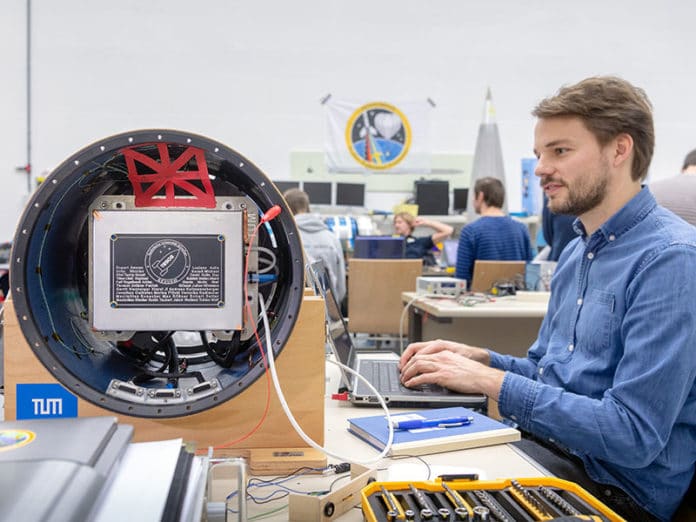When the high-altitude research rocket of the German Aerospace Center (DLR) in early march takes off as part of the 23rd REXUS rocket mission, it will be carrying a special payload module made by a team from the TUM Chair of Carbon Composites.
Scientists at the Technical University of Munich (TUM) have developed a payload module made of thermoplastic CFRP (carbon fiber-reinforced plastic) for the 23rd REXUS rocket mission.
Conventional heavyweight modules are made up of Aluminum. When it comes to manufacturing technologies: In contrast to fiber-reinforced thermosets, which are already used in aeronautics, they have to cure at high temperatures in an autoclave after manufacture.
The payload module cylindrical tube with load input rings fitted at the ends to screw the individual modules together. Both the ring and cylinder are made from the same thermoplastic material. Thus, the reinforcement fibers can be bonded directly to the rings during the construction of the cylinder.
Moreover, the module is 40 percent lighter than conventional aluminum modules. Also, it does not have to cure at high temperatures in an autoclave after manufacturing.
The fibers used in the construction of the cylinder are embedded in polyetheretherketone (PEEK). Wrapping and melting take place automatically: Sensors and their connections can be built directly into the material.
The team integrated fiber-optical temperature sensors read by a measuring device created by the TUM spin-off fos4X. During the flight, they can directly measure the thermal load of the payload module at various depths within the material itself.
Ralf Engelhardt, a staff member at the Chair for Carbon Composites said, “The magic words in the industry are ‘in situ consolidation’. The consolidation process gives us a component that looks like it came from a single mold, with no adhesive joints or screw connections.”
“Since the optical fibers are very small, they only have a minimal impact on the module’s mechanical properties. Direct integration in the laminate during production creates many more possibilities as well: In addition to temperature monitoring, expansion measurements would also be conceivable. This would also enable real-time monitoring of the load the module is subjected to.”
Prof. Klaus Drechsler, head of the Chair for Carbon Composites said, “The project gave the students a comprehensive look at all the aspects involved, from material sciences to process technology and structural mechanics, all the way to applications. At the new faculty, we focus on this type of application-oriented and interdisciplinary education. In doing so we help secure the future of cutting-edge research in Bavaria while at the same time supporting the transfer to industrial application. In addition to the excellent infrastructure, the proximity and direct exchange with the aeronautics industry are of great value to us.”
- More about REXUS and BEXUS missions: rexusbexus.net
- Website of the project: www.tesos-rexus.de
